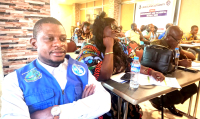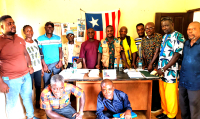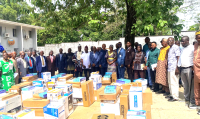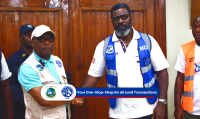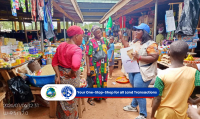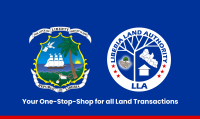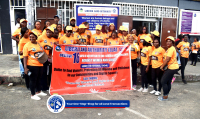The effort, led by Mr. Jonah Wreh Segbe, Jr., brought together traditional leaders, elders, local officials, representatives of SDI, and members of the Community Land Development and Management Committees (CLDMC).
The sessions held focused on strengthening community governance structures, clarifying leadership roles, and improving cooperation between CLDMCs and local and traditional authorities. Participants also reviewed key legal frameworks, including the Community Bylaws, the Land Rights Act of 2018, and the Community Rights Law of 2009.
Addressing the gathering, Mr. Segbe urged both communities to prioritize dialogue and transparency when dealing with land conflicts. He emphasized that lasting peace depends on truth-telling and willingness to negotiate, especially during testimony and boundary clarification processes.
He reaffirmed the LLA Maryland office’s commitment to implementing Articles 32–39 of the Land Rights Act, which guide the demarcation and formal recognition of customary land ownership across Liberia. According to him, collaboration with communities and civil society organizations remains essential to the work of the Land Authority.
“We are here to serve and to serve means to uphold the law,” Mr Segbe said. “Conflicts persist when we refuse to speak truthfully or find common ground as dialogue is the only sustainable path forward. Mr Segbe used the occasion to appeal to SDI to increase engagement in other communities, an appeal traditional leaders and elders hailed as the best way forward to resolve many customary land disputes and conflicts across the country.
During the training, Mr. Segbe worked closely with traditional leaders and elders to secure a peaceful, written boundary resolution agreement between the clans-an achievement that now clears the way for their confirmatory survey. He commended SDI for its unwavering partnership, describing the intervention as a direct fulfillment of the Land Rights Act of 2018.
Meanwhile, traditional leaders and elders hailed the agreement as a landmark accomplishment. Many described the resolution as both historic and unprecedented, noting that it restores harmony and strengthens community confidence as they prepare for the next steps to legally formalize their lands through the issuance of statutory deeds.
The successful mediation now stands as a model of cooperation, demonstrating what can be achieved when communities, authorities, and civil society organizations unite behind dialogue, legal understanding, and shared commitment to peace.
Keep following for more updates! You can also follow us on Facebook at, Liberia Land Authority
Published by: Davis Emmanuel Chedah



